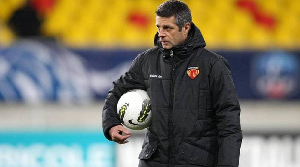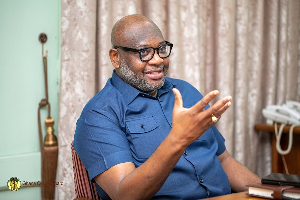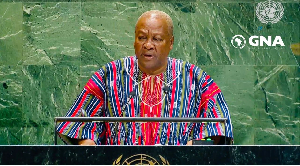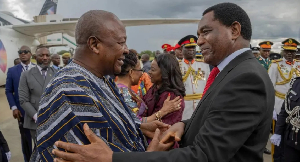I was both stunned and exasperated when on Friday, February 13, 2009, I read on the BBC News Web site that Albert Mnali, the District Commissioner of the northern province of Bukoba, Tanzania, had ordered the police to cane 19 schoolteachers because of perceived underperformance, lethargy and unprofessionalism on the teachers' part — the teachers were ostensibly “[habitually] late or not showing up for work and not teaching the official syllabus” (BBC News, 2009). Naturally, this somewhat unpardonable incident elicited heavy criticism and outrage from the Teachers Union of Tanzania; the Deputy Minister of Education of Tanzania, Mwantumu B. Mahiza; human rights groups; and a cross-section of Tanzanian parents. Justifiably, many of us just stumbling upon this news item would be incensed as well, for such an act of barbarism does not belong anywhere in modern society.
That said, what can we learn from this despicable incident? If the complaints of Albert Mnali, the man who ignited the inferno and quagmire, that the affected teachers were frequently “late or not showing up for work and not teaching the official syllabus” (BBC News, 2009) were contrasted with the problems inherent in Ghana’s languid public school system, then many teachers in Ghana would likely not escape indictment! Of course, it is common knowledge that some Ghanaian teachers, especially those in the rural areas as well as those with barely the right credentials to practice this beautiful craft of knowledge impartation, tend to skip classes or report to school late or show little interest in their students' academic welfare, perhaps because the former are aggrieved by the lack of adequate remuneration, or some other personal frustration; but who in Ghana can confidently declare that his income provides unmitigated satiation?
While the action of Albert Mnali has been vehemently condemned by many Tanzanians, as well as by others around the globe, perhaps this reprehensible incident has achieved one important goal: the unavoidable realization that the Tanzanian public school system is trapped in the tentacles of mediocrity and thus incapable of producing the next generation of that nation’s leaders. The story is no different in our nation, Ghana, where educational standards have been falling for several decades now. While we cannot round up underperforming teachers in Ghana and submit them to corporal punishment — the world will bawl us out if such a ludicrous thing occurs! — Ghanaian schoolchildren should not even be subjected to such a cruel punishment in contemporary times — we can take corrective measures to restore the nation to its former glory in academia, glory that was once so unambiguous that students from all over Africa clamored for space in our tertiary institutions!
Somehow, the public school system in Tanzania must be at its lowest ebb ever, which is why in recent years Tanzanian students have been experiencing fainting spells in large numbers while taking their final examinations, the latest example being the "mass hysteria" (BBC News, 2008) that occurred in Ali Hassan Mwinyi School, Tabora, in September 2008. According to the report, “More than 140 Standard Seven pupils were taking the national exam at the school … [when] 20 girls started fainting after finishing their first paper” (BBC News, 2008). Once this particular incident became public, other teachers around the country began to report similar incidents that were previously undisclosed, much to the chagrin of a stupefied nation. Who would blame these sets of students for fainting, once it was obvious to them that they were unprepared to take their final examinations? Perhaps, it is going to take some form of group frenzy — or a major fainting spell — in a Ghanaian school, when unprepared and poorly tutored students are faced with an examination that they are bound to fail because their teachers did not do their jobs well, to alert the authorities that our public schools need to be revamped to meet the needs of a constantly changing technological world!
With our classrooms filled with pupil teachers — this group tends to be found more in rural areas — what exactly do we expect our students (or pupils) to learn? Most of these pupil teachers did not even pass their Ordinary Level examinations (would that be the Senior Secondary School system now?), so how do we expect them to do their work with vigor and the utmost dedication, seeing that they themselves are aggrieved by their lack of progress on the continuum of academic advancement? That in the U.S.A. even primary schools are taught by university graduates was a fundamental eye-opener for this writer several years ago. One of the quickest ways to reverse the mediocrity so pervasive in our educational system, especially in rural community schools, is to institute a national standard, whereby a teacher, no matter where he finds himself in the country, will be unable to formally teach, unless he has met the basic requirements established by the Ministry of Education.
While our educational system is designed to produce elementary school teachers from our teacher training colleges, one thing is deficient in the overall scheme of things: the "coerced," or unnatural, selection of this all-important vocation by some of these teachers, as their failure to make it to the university had left them with fewer choices, a training college being one of the few options left. As such, it is impossible to get the best out of someone who is in a profession, not by choice, but by circumstance. One does not need to be an expert to know that once the rudimentary elements of a child's education are flawed, it becomes somewhat difficult for that child to break through in academia in later years! Indeed, so many fine Ghanaian minds may have been left untapped over the years, simply because no one was able to assist them develop to their full potential!
If we want our education to be restored to its former glory, then we ought to start from the "grassroots": getting rid of the pupil teacher system, strengthening the curricula in our teacher training colleges, and significantly increasing teacher pay to match those of comparable positions in other sectors of the economy. Additionally, we need to build more public universities, which can then absorb many of the fringe senior secondary students, thus giving them the opportunity to also obtain university degrees. If they choose to go into teaching after completing their university studies, they would be doing so willingly and heartily, which will, in turn, increase their commitment to their students.
In fact, Nana Akufo-Addo's vision to build one university in each region was, irrefutably, both laudable and attainable; but, of course, his enemies would castigate him for such a purportedly outlandish idea! Ghanaians are certainly very interesting people, because the honorifically titled Osagyefo Kwame Nkrumah faced similar opposition when he pursued his vision for the nation in the early 1960s; today, our first president has been — and continues to be — vindicated in so many ways. Instead of squandering our meager resources on undeserving ministers of state and other elected officials, we can start cutting back on waste as a nation, which will then allow us to allocate some resources to building these additional public universities. Do we not have any visionaries left in the nation?
Perhaps it will take 10 to 20 years to build a university in each region, but the time to act is certainly now. How can the nation grow if we lack the vision to see what we want for ourselves 10 or 20 or even 30 years from now? As a former university don, I am so far unimpressed with Dr. John Mills' plans for Ghana's educational sector. Would it not be ironic, indeed, if the former tax professor did not see education as a salient necessity to both sustain our nationhood and secure us our rightful place in the world community? Perhaps, Nana Akufo-Addo may never be president, but at least, we ought to take a good and dispassionate look at his ideas for transforming Ghana's educational sector. We owe Nana Akufo-Addo just that morsel of honor!
The writer, Daniel K. Pryce, holds a master's degree in public administration from George Mason University, U.S.A. He is a member of the national honor society for public affairs and administration in the U.S.A. He can be reached at dpryce@cox.net.
Opinions of Thursday, 19 February 2009
Columnist: Pryce, Daniel K.














